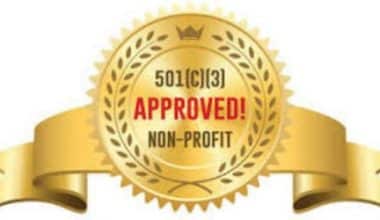The effects on your company and payroll of an employee becoming tax free could vary. Normally, taxes are subtracted from an employee’s compensation. However, what does “tax free” entail in terms of pay calculations? Continue reading to learn more about sales tax exemption requirements, its certificate, and reasons for exemption.
Preamble
Here, you might not have to pay taxes on some types of income. Hence, to be eligible for an exemption, you must fulfill specific requirements. Your entire income from a particular source, up to a certain amount, is exempt from tax. Also, your unique scenario will determine the exemptions you are eligible to use. They are available in the various Personal Tax Credit Relief and Exemption areas.
Additionally, being tax-exempt denotes the absence of any federal, state, or municipal taxes on a transaction, a corporation, a person, or their income. Usually, charities or religious institutions recognized by the IRS qualify as tax-exempt entities. They have tax-exempt status and are exempt from federal taxation, and most gifts made to them are generally tax deductible.
The Distinction Between Tax Credits Deductions and Exemptions
Tax deductions and tax credits are not the same as tax exemptions. However, their distinctions include:
- Tax exemptions reduce the amount of income that is initially considered; in other words, they typically take money right off the top.
- Tax deductions are typically costs you’ve incurred that reduce the portion of your income that is taxable.
- Tax credits are full reductions in the amount of tax you have to pay.
Prior to the new tax laws that went into effect in 2018, there were two different types of income tax exemptions: personal exemptions for you and your spouse, and dependency exemptions, which are often for your children or other persons you assist.
Who Are the Tax-Exempt Entities?
There are a wide variety of tax-exempt organizations, including charities. They are divided into nine primary groups, 26 categories, and more than 600 subcategories according to the National Taxonomy of Exempt Entities, which was created by the National Center for Charitable Statistics at the Urban Institute and used by the Internal Revenue Service. The following are the key groups:
- Humanities, arts, and culture
- Education (e.g., private schools, colleges, parent-teacher associations)
- Animals and the environment
- Health
- Human resources (e.g., the Girl Scouts, homeless shelters, and food banks)
- Foreign and international affairs
- Benefit to society at large
- Religion-related (e.g., interfaith coalitions, religious societies)
- Mutual affiliation or gain
Even though tax exemption stipulates that owners cannot profit from the business, workers and contractors who work for a nonprofit can still enjoy private benefits, which can lead to disputes over matters like determining whether remuneration is excessive. Numerous mutual benefit groups are also eligible for tax exemptions; however, charitable contributions to them are typically not deductible.
Also, having tax-exempt status means that the federal government does not tax money made from activities and assets. States frequently exempt charities from state and local property taxes and sales taxes and generally follow the federal precedent if they impose state income taxes. In some cases, charities can issue bonds that are exempt from taxes.
Also see: EXEMPTIONS ON TAXES: Tax Exemption Explained
Reasons for Tax Exemption
Different ways exist for giving exemptions to organizations. Within a jurisdiction, and especially within sub-jurisdictions, there are many different ways to do things. Hence, organizations that fit specified definitions are generally exempt from taxation in several jurisdictions. For instance, the United Kingdom exempts organizations subject to the Charities Law from rates (property taxes) and income taxes. This overall exemption might be somewhat constrained by the jurisdiction’s constrained ability to tax. However, some jurisdictions may only impose one form of tax or grant exemptions from just one type of tax.
Only specific taxes are exempt in some jurisdictions. Certain organizations are free from federal income taxes in the United States, but not from different excises or the majority of employment taxes. Thus, below are the reasons for tax exemption:
#1. Religious and Charitable Groups
This is one of the reasons for tax exemption. Here, many tax systems completely exempt designated charitable organizations from paying taxes. Religious institutions (temples, mosques, churches, etc.), fraternal groups (including social clubs), public charities (such as those that assist the homeless), and other groups deemed to serve the public good are examples of such organizations.
#2. Government Organizations
Internal governments are often immune from taxes. This exemption typically applies to lower-tier units and across units in multi-tier jurisdictions. For instance, in the United States, state and local governments are not liable to local, state, or federal income taxes.
#3. Pension Schemes
This is also one of the reasons for tax exemption. Most tax systems do not apply to organizations set up to manage retirement investments and pensions for the benefit of employees or for those employed by one or more employers. Numerous systems also exempt personal pension plans from paying taxes.
#4. Educational Establishments
Some countries provide separate full or partial tax exemptions for educational institutions. Also, this is one of the reasons for a tax exemption that only applies to specific roles or sources of income.
#5. Reciprocal Exemptions
Organizations exempt from tax in some other jurisdictions may be able to avoid paying taxes in some countries. For instance, most U.S. states let organizations that the federal government says are tax-exempt from paying taxes.
#6. Revenue Tax
Lastly, this is one of the reasons for tax exemption. Here, resellers don’t have to pay sales taxes on goods they retain for sale and then sell in most of the states and cities in the United States that have them. Furthermore, the majority of these states and municipalities exclude from sales taxes commodities used directly in the manufacture of other goods (i.e., raw materials).
You may want to see: OVER 55 HOME SALE EXEMPTION: Meaning and How to Calculate them
Form for Tax Exemption
Below are the various tax exemption forms to fill in and complete:
- Streamlined Sales and Use Tax Exemption Certificate
- Purchases of Compressed or Liquefied Natural Gas for Use as Transportation Fuel (Fill-In)
- Private Party Selling a Motor Vehicle to Tribes
- Digital Products and Remote Access Software Exemption Certificate (Fill-In)
- Exemption Certificate for Logs Delivered to an Export Facility
- Retail Sales Tax Exemption Certificate (Original Manufacturer’s Warranty)
- Tax Exemption for Sales to Tribes (Fill-in)
- Taxpayer Petition to the County Board of Equalization for Review of Senior Citizen/Disabled Person Exemption of Deferral Determination (Fill-In)
- Tribal Fishing, Hunting, and Gathering (Fill-in)
- Sales Tax Exemption Certificate for Health Care Providers
- Seller’s Business and Occupation Tax Foreign Fuel Exemption Certificate
- Agriculture Commodity Shipped to Interstate & Foreign Destinations, Certificate of
- Application for Property Tax and Leasehold Excise Tax Exemption (Fill-In)
- Application for Tribal Property Used for Essential Government Service
- Buyers’ Certificate of Tax Exempt Export Carbonated Beverage Syrup
- Leasehold Excise Tax Exemption to Operate an Anaerobic Digester (Fill-In)
- Public Utility Tax Exemption Certificate for Persons Supplying Power to Electrolytic Processors
- Manufacturer’s Sales and Use Tax Exemption Certificate (Fill-In)
- Motion Picture and Video Production Business Exemption Certificate
- Exemption for Qualifying Single Family Residences Damaged by a Natural Disaster (Fill-In)
- Farmers’ Retail Sales Tax Exemption Certificate (Fill-In)
- Leasehold Excise Tax Exemption to Operate an Anaerobic Digester (Fill-In)
Tax Exemption Requirements
The tax exemption requirements includes the following:
- Social Welfare Organizations: For information on social welfare organization tax exemption requirements, consult Section 501(c)(4) of the Internal Revenue Code.
- Employee Benefit Funds or Associations: An overview of the conditions for employees’ associations to qualify for tax exemption requirements under IRC sections 501(c)(4), 501(c)(9), and 501(c) (17).
- Organizations for Agriculture and Labor: A brief explanation of the conditions necessary to qualify for exemption under IRC section 501(c) (5).
- Business Leagues: Review the requirements for business league tax exemption under section 501(c)(6) of the Internal Revenue Code.
- The Social Clubs: Internal Revenue Code Section 501(c) requirements for social clubs including exemption, filing, and recordkeeping (7).
- Fraternal Organizations:The following is a brief explanation of sections 501(c)(8) and 501(c) of the Internal Revenue Code (“IRC” requirements) (10).
- Organizations for Veterans: An overview of the conditions necessary for veterans organizations to be exempt from taxation under sections 501(c)(19) and 501(c) (23).
- Requirements for Political Organization Exemption: An overview of the conditions needed to qualify for an exemption under IRC section 527.
- Other Tax-Exempt Organizations: Organizations of various types that are exempt from paying federal income taxes.
How Can I Request a Tax Exemption?
Following their incorporation as a corporation, nonprofits and other groups can apply for tax exemption by sending in IRS Form 1023 within 27 months. So, the nonprofit can be said to be tax-exempt from the time it began. Also, Form 1023-EZ might have to be filled out by smaller nonprofits. The organizations need to have an employer identification number (EIN) in order to request a tax exemption. You can submit Form SS-4 to request an EIN if your organization doesn’t already have one. Your EIN may take up to 4 weeks to arrive, depending on how you applied.
You must wait for IRS approval after submitting Form 1023 digitally and paying the filing fees. Depending on the correctness of your application and any documented follow-up questions the IRS may have, this might take a few months to a year. So, if you’ve previously outlined your nonprofit’s main objectives and justification for existence in your incorporation documents, it may speed up the process. Additionally, make sure you contact the IRS right away.
Several legal and taxation concerns are involved in the prerequisites for tax exemption. This is why you should get advice from a seasoned tax lawyer who can supervise the entire application procedure and guarantee that the company complies with all pertinent legal requirements for tax exemption.
Tax Exemption Certificate
A tax-exempt certificate is a formal statement that the ordinary taxation system, such as sales tax, VAT, or GST, does not apply to the purchases made by a firm. Tax exemption certifications are essential for your internet business’s tax compliance. Although tax exemption certificates aren’t typically known to new merchants, you’re likely to run into them as your company expands. You could even wish to register for one yourself, depending on the kind of business you run, so you can buy products without paying taxes that are meant for resale.
Do Certificates of Tax Exemption Expire?
Certain tax exemption certificates do have expiration dates, although they vary by state and company type. Your resale certificate won’t expire in some areas, like Texas, as long as none of the crucial business details have changed.
How Long Are Certificates of Tax Exemption Valid?
In Alabama and Indiana, tax exemption certificates are valid for a year. Maryland, Nevada, and at least nine states—Florida, Illinois, Kansas, Kentucky, Pennsylvania, South Dakota, and Virginia—have a five-year validity period for certificates. In order to prevent any fines, make sure to renew your tax exemption certificate as needed if you reside in one of these states.
Additionally, if you sell to clients who possess certificates and are located in one of these states, you must mark the dates on which their certificates expire in order to seek new ones in time to get the updated information prior to sending out purchases.
Should I Claim Tax Exemption?
If you anticipate receiving a refund of all federal income tax withheld and had no tax liability in the prior tax year, you are exempt from federal withholding requirements.
Who Were Exempted From Tax and Why?
Profits of any business or institution involved in ecclesiastical, charitable, benevolent, or educational activities of a public character are excluded from income tax under Section 23(1)(c) of the CITA and Section 19, Paragraph 13 of the Third Schedule of the PITA.
How to Calculate Tax Exemption?
To find out your exempt and taxable HRA details, all you have to do is utilize the online HRA calculator.
What Is the Minimum Salary to Pay Tax?
Tax rates depends on personal income. Note that employees are no longer subject to tax or pay-as-you-earn deductions if their monthly earnings are less than the national minimum wage, which is now NGN 30,000. (PAYE).
Who Are Exempted From VAT?
- Wholesome food products
- Literature and educational resources
- Baby supplies
- Local-produced fertilizer, veterinary and agricultural medication, and farming equipment.
Which Is Best for Tax Exemption?
The National Pension Plan (NPS). Under section 80C of the IT Act, a tax exemption of up to 1.5 lahks can be requested. One may receive an extra deduction of up to Rs. 50,000 under Section 80CCD (1b). The amount is not taxed if the employer contributes 10% of the employee’s base salary to the National Pension Scheme.
References
- taxpolicycenter.org
- en.wikipedia.org
- dor.wa.gov
- freshbooks.com
- irs.gov
Related Articles
- Exemptions On Taxes: Tax Exemption Explained!
- OVER-55 HOME SALE EXEMPTION: Meaning, How to Calculate & Use It
- Nonprofit Organizations: Meaning, Comparisons & Best Practices
- STATES WITHOUT PROPERTY TAX: Are There Any States Without Property Tax in 2023?
- SAFE INVESTMENTS WITH HIGH RETURNS: Best and Profitable Ideas 2023.






